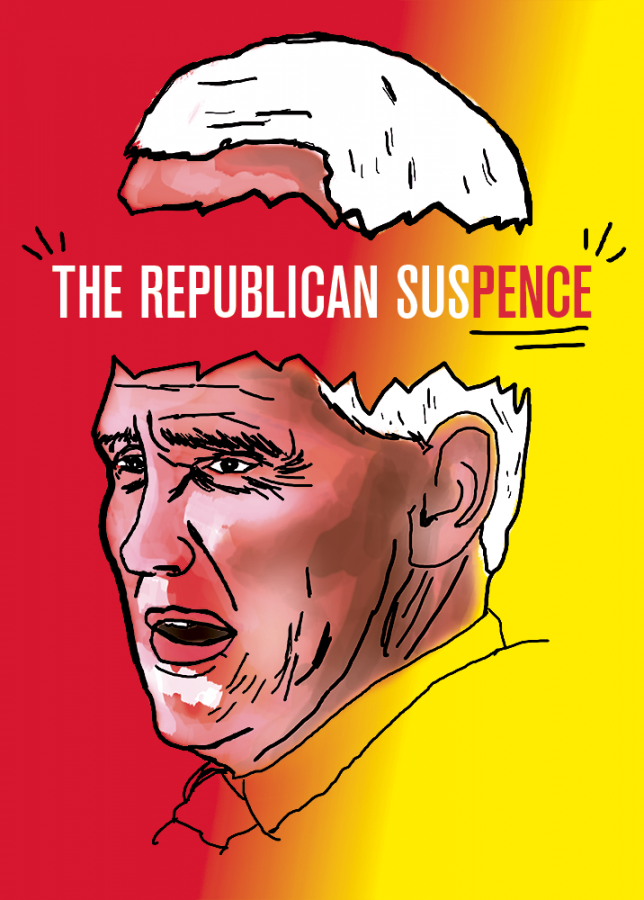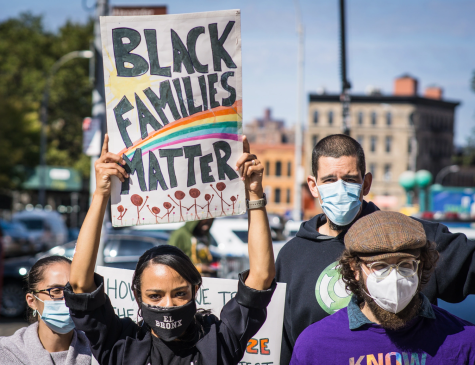Vice presidential candidate a virtual unknown
August 3, 2016
In 1999, during NBC’s Meet the Press with Tim Russert, Donald Trump said he was “very pro-choice” and that “partial birth abortions were okay.” Trump appeared on the show to tell audiences why he decided to leave the Republican Party and speak of New York City values. Fast forward to 2011 when Trump changed from pro-choice to pro-life. Trump switched his stance when a friend’s wife wanted to abort a child, but his friend begged to keep it, reports ABC News. The kid became a “great kid” and a “super star,” Trump said.
Trump is the Republican presidential nominee and Mike Pence is his running mate. He is known as a very religious man with a conservative background that aligns with much of the Republican Party.
This year, Pence signed a measure which prohibited patients from an abortion on the merits of race, gender or disability of the fetus, reports news organization Mother Jones. This law also said that doctors were legally liable for wrongful death if they performed an abortion for any of these reasons.
Pence was a six-term U.S. House of Representative member from 2001-2013 where he would eventually leave to become the governor of Indiana, states The Atlantic. Before his political career, Pence was an attorney and talk radio host.
As Governor of Indiana, Pence became a household name because he signed the Religious Freedom Restoration Act on March 26, 2015, reports MSNBC. The RFRA was signed to protect the right of Christian business owners to refuse service to people who did not align with their religious beliefs.
“The Constitution of the United States and the Indiana Constitution both provide strong recognition of the freedom of religion but today, many people of faith feel their religious liberty is under attack by government action,” said Pence right after he signed the bill, according to the state of Indiana webpage.
Trump spoke to members of the Faith and Freedom Coalition on June 10 and evangelical leaders in New York on June 21 , where he said the right to freely practice religion was “so important” and “people are going to say ‘Merry Christmas’ again,” reports NPR.
However, Trump has not always been as avid of a religious freedom supporter as Pence is. Trump never asked “God for forgiveness,” states Laura Turner of Politico in a July 11 Politico article where she questioned if a Trump nomination meant the end for the “religious right” of the Republican Party.
However, Pence and Trump differ in regards to the federal minimum wage and trade. On July 27, Trump said that the minimum wage has to go up to at least $10, at a press conference in Miami. Pence voted against an increase on the minimum wage for three years straight as a member of Congress from 2006-2009, states Mother Jones.
On his Twitter account, Pence urged for a swift adoption of the Trans Pacific Partnership on Sept. 8, 2014 and claimed that to ban Muslims from the country was unconstitutional on Dec. 8, 2015. Both are exact opposite to Trump’s plans if elected president.
Trump and Pence are completely different when it comes to their political viewpoints. However, it looks as if they are willing to compromise on their own political ideals and find some sort of middle ground. Trump and Clinton have flip-flopped in recent presidential polls over the course of the past month, according to Real Clear Politics, so it is entirely possible that Trump becomes the 45th President of the United States.

















